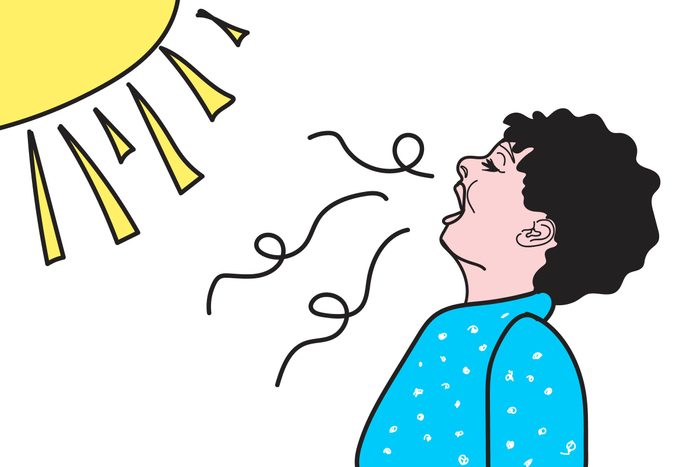
A bizarre habit of sneezing at the sun
The award for the quirkiest inherited trait goes to the cleverly named ACHOO Syndrome (Autosomal Dominant Compelling Heliopathic Outburst). According to the National Center for Biotechnology Information, those affected sneeze when they suddenly see bright lights. So, if you’re in a dark movie theatre and then go outside or into a well-lit lobby, gesundheit! ACHOO Syndrome is dominant, so if one of your parents has it, you have a 50 per cent chance of having it, too.
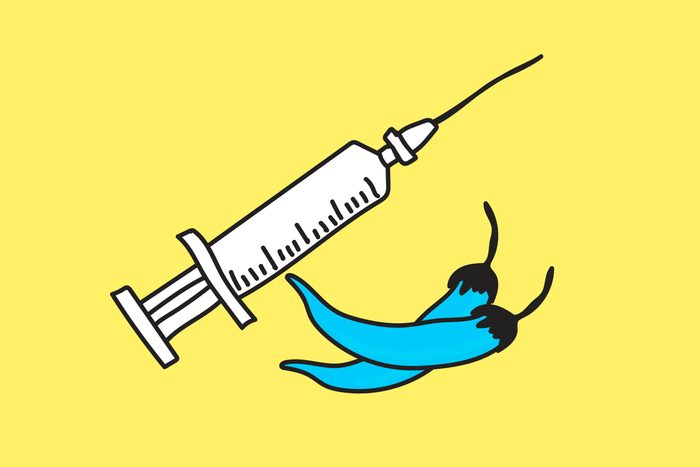
Your tolerance for pain
If you’re a redhead, you didn’t just get your ginger locks from your parents—you also got this inherited trait: an ability to withstand stinging pain better than blondes and brunettes. In a series of studies, Danish researchers at Aalborg University injected subjects with capsaicin, the active component of chili, and found that redheads were less sensitive to this type of pain. Because of this, they can better tolerate spicy foods as well as the discomfort of a pinprick. Other research, however, suggests that the world’s two per cent of redheads are more sensitive to cold and less responsive to injected forms of anesthesia.
Here are more strange facts about redheads that will surprise you.

Distinctive facial expressions
This was certainly one of the more surprising inherited traits we found out about. You know that “serious look” that you share with your mom? You might think that it’s the result of spending a lot of time together and subconsciously mimicking her expression since you were a child. You’d be wrong about that. Surprisingly, as Scientific American reports, a study of blind subjects and their sighted relatives revealed that they shared significantly similar facial expressions. This even held true for relatives who were separated at birth and hadn’t met until years later.
Find out what your dog’s facial expressions really mean.

A love of—or hatred for—the gym
You know that great feeling you get when you finish a workout? No? You may have a gene that interferes with the release of dopamine, the feel-good neurotransmitter that regulates your brain’s pleasure and reward centers. According to researchers at the University of Georgia, this gene plus an individual’s personality affects a person’s “natural urge” to be active or, well, not. But this doesn’t give you an excuse to skip the gym. Even if you don’t have the inherited traits that predispose you to like working out, you can still develop a love of exercise, even with a genetic inclination to be a couch potato.
These are the 12 definitive traits of a middle child.

Whether you wake up early or burn the midnight oil
“Early to bed, early to rise” sounds like common sense, but not if your genes are working against you. A 2016 study by the genetics company 23andMe found that people may be genetically predisposed to be morning people or night owls. They discovered that there are 15 areas of the human genome linked to being bright-eyed and bushy-tailed in the morning, and having even one of them increases the likelihood of being a morning person by up to 25 per cent. Furthermore, seven of those regions are related to genes regulating circadian rhythm. That internal clock of yours? It might be programmed with a snooze button, so don’t let anyone else tell you and your inherited traits when to get out of bed in the morning!
Can’t seem to get enough sleep? Here are the medical reasons why you’re tired all the time.

Your java obsession
This inheritance could cost you a bunch of money over the course of your lifetime. Believe it or not, a love of coffee—or more accurately, the way that your body metabolizes caffeine—can be passed down the genetic pipeline. In a study published in the journal Scientific Reports, researchers compared coffee drinkers in Italy and the Netherlands and found that those with a greater expression of the PDSS2 gene drank less coffee. They theorize that those people metabolize caffeine slower and therefore need less of it to feel happy and awake. As for the others? They’ll likely want a really big mug.
Here’s how much coffee you can drink daily before it gets dangerous.

Sweaty hands
It might not just be your nerves. If it’s chronic and excessive, it’s likely your DNA—and the way your sympathetic nerve, which controls your body’s flight or flight response, contracts blood vessels in your hands (and possibly also your feet). UCLA researchers found that two-thirds of patients who suffer from hyperhidrosis, aka “sweaty palms syndrome,” have a family history of it. However, a person only has a 28 per cent chance of inheriting this trait if one of their parents has the disorder, indicating that other genes may also need to be present. How prevalent is this syndrome? Around 5 per cent of people may have some form of it.
Get to know the common medical reasons for excessive sweating.
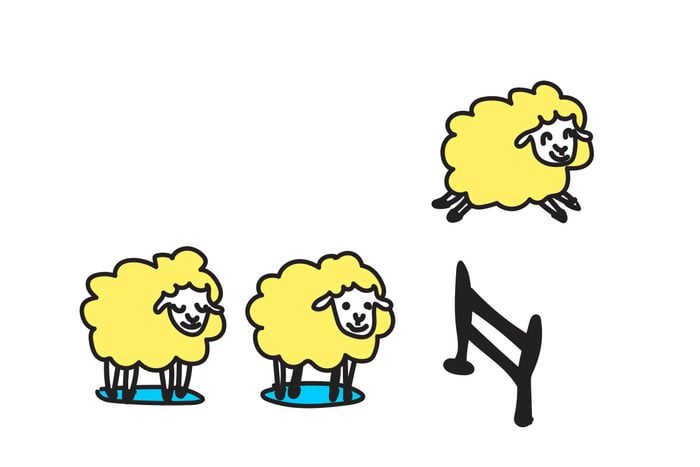
Insomnia
Your restless nights might not just be a symptom of your stressful days. Insomnia often runs in families, and in fact, an international team of researchers recently identified seven genes that put people at risk for it. They also found a “strong genetic overlap” with anxiety disorders, depression, and neuroticism. So, perhaps this will make you sleep better tonight: It’s not all in your head, and someday, there may be more biologically based ways to help you get some shut-eye.
In the meantime, here’s what you can do for a better night’s sleep.
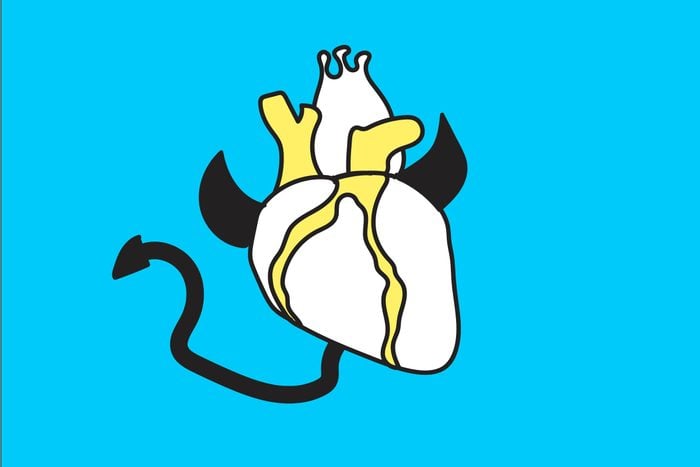
Your cheating heart
You’ve probably heard the theory that men cheat because they have a biological imperative to “spread their seed” as well as the fact that some men have a “playboy gene” (which is actually a variant on the thrill-seeking DRD4 gene). What may be news to you is that female genetics can be just as damning. The culprit? A mutation on women’s vasopressin receptor gene, which can affect trust, empathy and bonding. Still, the presence of these genes in either sex doesn’t guarantee that someone will be unfaithful… And it’s certainly not an excuse for bad behaviour, but the inherited traits in men and women of this impulse aren’t as uncommon as you might hope.
Need a bit of a boost in the bedroom? Try adding these aphrodisiac foods to your daily diet.

Whether you have the urge to ski a black diamond
Sure, skill determines your ability to make it down a tough trail in one piece, but your genes influence whether you even want to be there in the first place. In a study of 500 intermediate to expert skiers and snowboarders, researchers found that those who had a specific genetic marker were more likely to take risks on the slopes than those without it.
Boost your confidence and self-esteem with these expert-approved strategies.
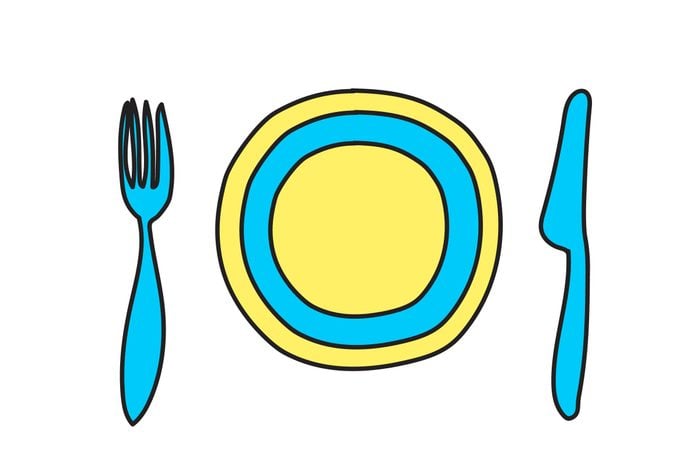
What type of diet works for you
The likelihood that a diet will work might have more to do with your genetic makeup than the “magic” of the diet itself, according to a study on mice reported by the Genetics Society of America. The real-world (and human) takeaway? “Since there are different optimal diets for different individuals,” says researcher William Barrington, Ph.D, “this underscores the need for precision nutrition, which would identify optimal dietary patterns for each person.” The bottom line? One diet doesn’t fit all, and it may not have anything to do with your willpower.
Looking to shed a few excess pounds? These diet changes can result in serious weight loss.

How aggressive you were as a toddler
If your Terrible Twos were a little more intense than normal, it may have been your parents’ fault—but not because of their shoddy parenting skills. According to researchers at the University of Montreal, frustratingly aggressive behaviors like hitting, biting and kicking in early childhood have more to do with genetics than environmental factors. Luckily, this behaviour won’t necessarily continue, as long as it’s dealt with mindfully and carefully. In fact, a 2017 study found that while early aggression may be an inherited trait, after the age of 6, it’s more about environmental factors and a parent’s, well, parenting.
Still having issues keeping your aggression in check? Check out these healthy ways to control your anger.

How trusting you are
Do you believe your friend’s excuse for bailing on plans tonight? Genetics might be partially responsible for your answer to that question. In a study of twins, researchers at the University of Arizona found that trust is 30 per cent heritable. If you’re more suspicious? Well, that’s because of your prior (and probably negative) experiences. Distrust, according to the study, is not an inherited trait and “appears to be primarily socialized.”
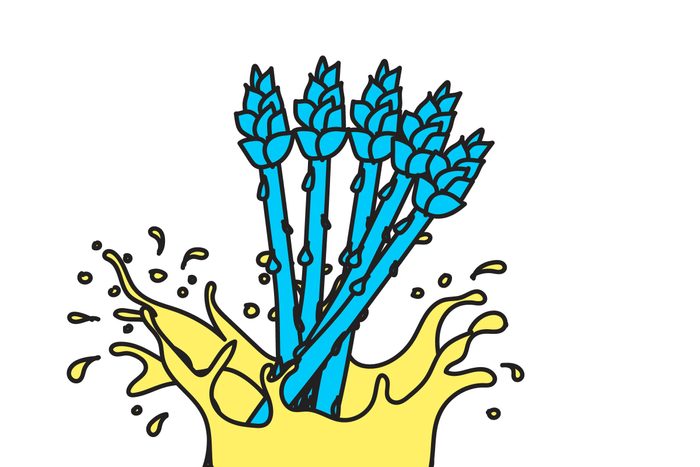
Your ability to smell “asparagus pee”
Let’s talk about pee for a second. You may have heard—or know all too well—that asparagus can make a person’s pee smell funny. What you may not know is that it may make everyone’s pee smell funny because our bodies turn asparagusic acid into chemicals that contain sulfur. So why can’t some people smell it? It could be due to a single genetic mutation on a cluster of genes that affect olfactory receptors, meaning that the inherited traits that affect your sense of smell could be the true culprits here.
We answer the age-old question: Why does asparagus make your pee smell?

Your sweet tooth
Yes, that cookie tastes really good—but it may taste even better to you or your child. A study at the University of Guelph found that nearly 80 per cent of preschoolers carried at least one of the genotypes that makes them want to snack on sweets instead of veggies. Similarly, a prior study examined a variation on the TAS2R38 taste-receptor gene, which causes vegetables like Brussels sprouts and kale taste more bitter to certain people. How did that affect their diets? Those who didn’t experience the bitter taste ate 200 more servings of vegetables per year.
Find out how these surprising foods trick your taste buds.
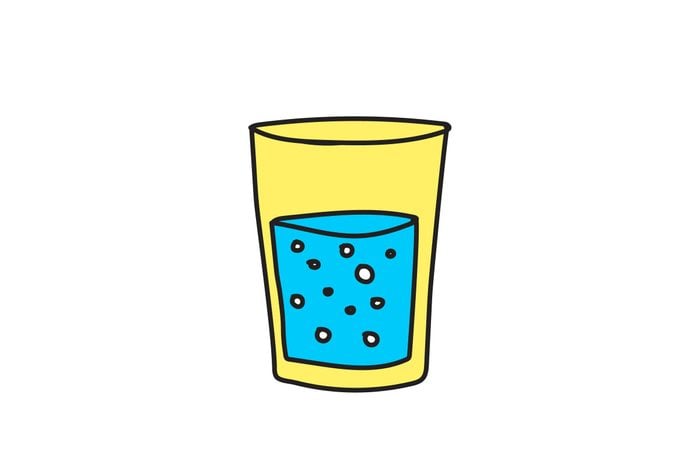
Whether you see a glass as half empty or half full
If you never quite look on the bright side, it’s not necessarily because life has beaten you down. Your OXTR gene, which affects the receptor for the love and bonding hormone oxytocin, could be responsible. According to a study published in the Proceedings of the National Academy of Sciences, people with a certain variation on that gene “were less optimistic, had lower self-esteem, and felt less personal mastery” than people with a different set of them. That said, while this inherited optimism or pessimism may influence your outlook on life, it’s not the only determining factor. Here are 10 things that naturally optimistic people do every day—which can alter your perspective, no matter what your genetic predisposition.
Next, find out the 7 sneaky things your voice predicts about you.